‘Keep calm and don’t overreact’ to hawkish US talk, say Chinese analysts
China should stay calm and not intensify the situation in the South China Sea just on the basis of that tough talk by Trump cabinet nominees, say mainland experts on US affairs
South China Morning Post
PUBLISHED : Friday, 13 January, 2017, 11:43pm
UPDATED : Saturday, 14 January, 2017, 2:16am
Chinese analysts have called for calm and caution in the aftermath of the tough stands on China taken by US president-elect Donald Trump’s diplomacy and military picks this week.
At a US Senate confirmation hearing late on Thursday, defence secretary nominee James Mattis branded China, Russia and Islamist militants as the biggest challenges to the US-led world order since the second world war, and called for the US Congress to lift spending military spending caps.
Those comments came a day after Rex Tillerson, Trump’s pick for secretary of state, said the United States must send a clear signal to China that its building of and access to islands in the disputed South China Sea must stop.

Liu Weidong, a US foreign affairs observer from the Chinese Academy of Social Sciences, said the two nominees were warning China not to be arrogant, but “China need not overly react since Trump’s China policy is still not known”.
“China should stay calm and not intensify the situation in the South China Sea just on the basis of that tough talk. After all, the US has not put those hawkish remarks into reality,” Liu said.
Zhang Zhexin, a US foreign affairs expert from the Shanghai Institutes for International Studies, said the hawkish stands had a double message.
“They reflect the growing worries about China’s role in the Asia-Pacifc as well as bureaucratic interests – the defence department wants a bigger budget.”
China’s ambassador to the US, Cui Tiankai, said in New York late on Thursday that Beijing looked forward to having close link with the new administration for “more robust, stable and fruitful” ties.
“I hope both sides will work together for ... mutual respect and cooperation for win-win Sino-US relations. I also hope all people can work for it constructively,” Xinhua quoted Cui as saying.
At Thursday’s hearing Mattis told Congress that Washington must be ready to confront Moscow where necessary even as he backed Trump’s bid for better ties with Russia.
Asked about the main threats to US interests, Mattis said: “I would consider the principal threats to start with Russia.”

Mattis said he wanted to meet the new Trump national security team to “craft a strategy to confront Russia for what it’s done”.
Mattis also singled out China for its activities in the South China Sea, where it has been building islands and equipping them with anti-aircraft and anti-missile batteries. Together with Russian activities and the threats of Islamist extremists, Mattis said China was part of a mounting assault on global stability, and the relationship with Beijing needed to be carefully managed.
“I think it [the world order] is under the biggest attack since world war two ... and that is from Russia,
from terrorist groups, and with what China is doing in the South China Sea,” he said.
Outgoing US Secretary of State John Kerry said in Vietnam yesterday that he was confident the next administration would stick to the same peaceful principles on Asian security as the present one, despite the hawkish comments from Trump’s cabinet picks.
Citing a person familiar with deliberations inside the Trump transition team, the Associated Press reported that Tillerson may have stoked confusion over the US’s South China Sea policy by appearing to advocate a blockade of the Chinese artificial islands.
The source said it was aware of no such planning, raising the likelihood that Tillerson misspoke at the confirmation hearing. The individual was not authorised to speak on the record and demanded anonymity.
Meanwhile, departing US ambassador to China Max Baucus said he was optimistic about the future of Sino-US relations, even though they might not be smooth all the time.
Baucus said in remarks on the US embassy’s microblog that he was “positive and optimistic” about the future of the relationship because the two countries were interconnected across an array of issues on which they must cooperate.
“There may be some bumps in the road – there always are in relationships – but we will work them out. This relationship is too important.”
Baucus, who was nominated ambassador to China on January 7, 2014, will leave Beijing for home on Monday. US president-elect Donald Trump abruptly ordered all political envoys appointed by President Barack Obama to vacate their posts by January 20, the day of his inauguration.
Trump has nominated Iowa Governor Terry Branstad as the next ambassador to China.
Additional reporting by Zhuang Pinghui, Reuters, Associated Press, Kyodo, Agence France-Presse

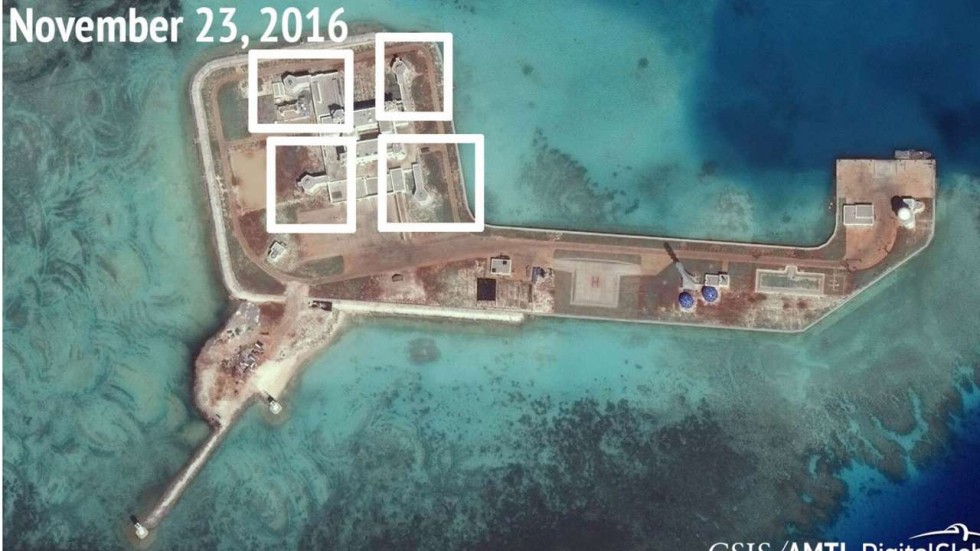

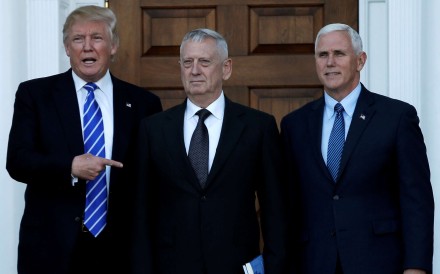
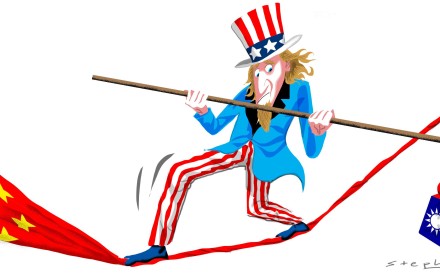
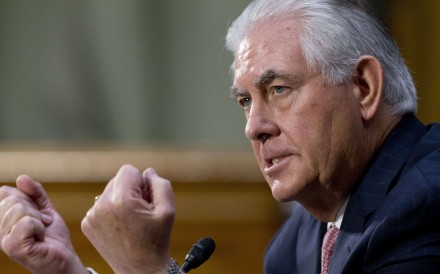
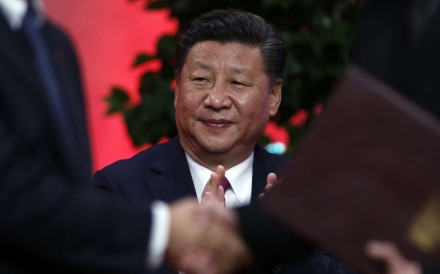
No comments:
Post a Comment